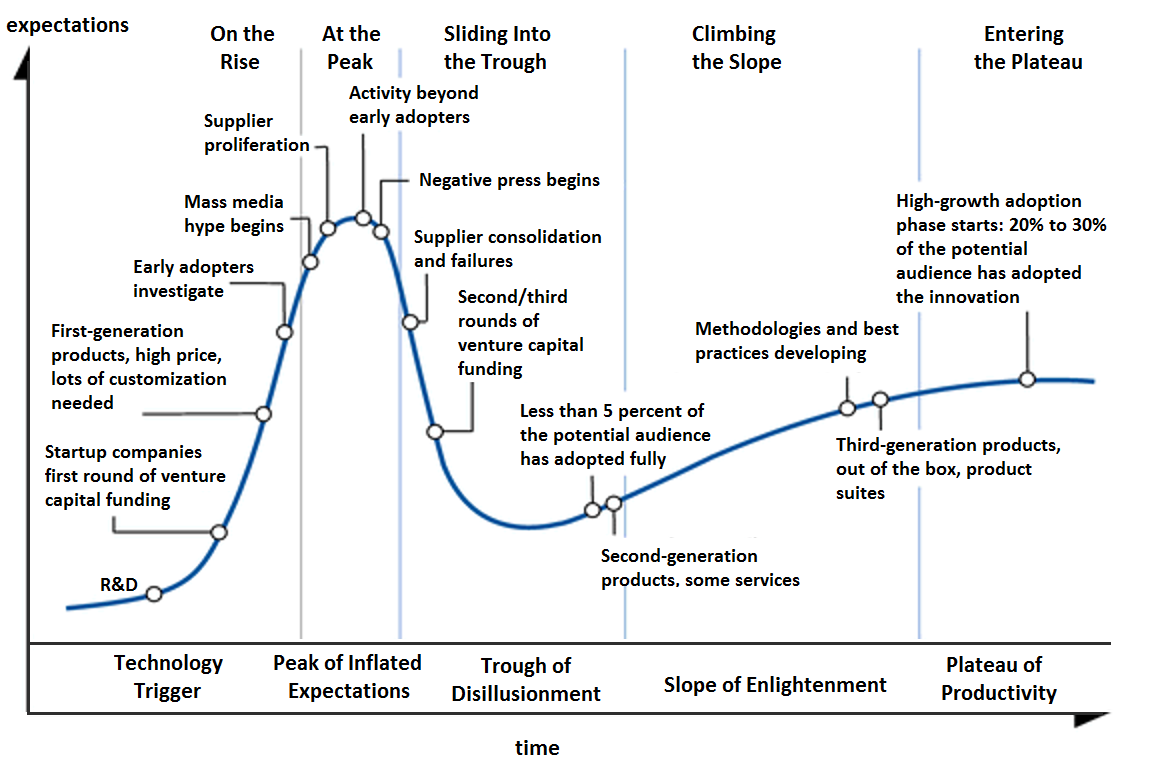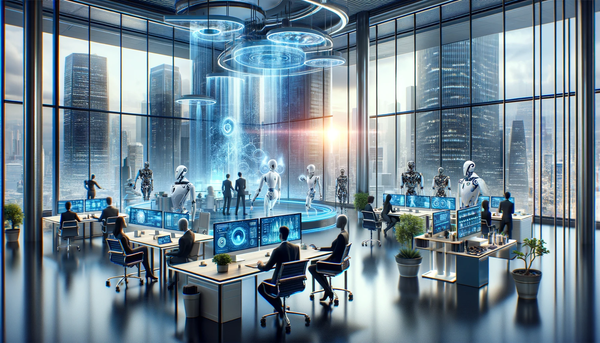The Gartner Hype Cycle is a useful tool for understanding the stages of development for emerging technologies. It can help us assess the potential of a technology and how it might affect our lives, businesses, the workforce, and society at large. In this blog post, we will take a look at how the Hype Cycle applies to conversational machine learning solutions like ChatGPT.

What is the Gartner Hype Cycle?
The Gartner Hype Cycle is a graphical representation of the development stages of emerging technology, including artificial intelligence. It is composed of five distinct phases:
- Innovation Trigger: This is the beginning of the cycle, when tech first appears and starts to generate excitement and interest.
- Peak of Inflated Expectations: This is the second phase, when the tech’s potential is over-hyped and enthusiasm is at its highest.
- Trough of Disillusionment: This is the third phase, when the tech fails to meet expectations, resulting in lowered enthusiasm and interest.
- Slope of Enlightenment: This is the fourth phase, when the tech begins to be understood and its potential is better appreciated.
- Plateau of Productivity: This is the fifth and final phase, when the tech is adopted and used in real-world applications.
Business leaders, technologists, and investors use the Gartner Hype Cycle to contextualize the different ways most people respond to technology as it develops and matures.
Where Does Conversational AI Fall on the Hype Cycle?
Conversational AI is still in its early stages of development. It is currently in the “Innovation Trigger” phase, where it is generating excitement and interest but has yet to reach its full potential.
As more organizations and individuals become aware of the potential of conversational AI, we can expect to see it move into the “Peak of Inflated Expectations” phase, where it will be widely hyped and over-promised.
What Does This Mean for Businesses?
For organizations, this means that now is the time to start exploring how conversational AI can help them achieve their goals and fulfill their services in a better, faster way. As the technology continues to develop, businesses must be prepared to capitalize on its potential and mitigate competitive threats from other organizations using AI.
This means investing in research and development and exploring how conversational AI can help improve customer experiences, increase efficiency, and reduce costs. In a post-pandemic economy, where employees are prioritizing their mental health and well being, and employers are looking for ways to hire the right skills for the near future, it's clear that AI is a key component in the future of work.
What Does This Mean for Individuals?
For individuals, this means that now is the time to start learning about the potential of conversational AI. As the technology continues to develop, workers must understand how to use it to stay relevant, do their jobs better and faster, and develop complementary soft skills that will always be in demand.
This means it's important workers get training to familiarize themselves with AI, explore firsthand how it can help them in their daily lives, and stay up to date on the latest trends and developments. Not everyone will have their jobs eliminated because of AI, but there's a good chance that in the months ahead, existing employees who augment their skills with AI will have new employment opportunities.
Identifying Future Jobs
It's entirely possible that AI will displace certain careers as we shift into the age of automation. In the past, though, this often comes with new jobs and new types of work.
Just 20 years ago, the field of data science wasn't nearly as popular as it is now. Today, the average data scientist earns over $120,000 per year. Digital marketers, growth hackers, and performance marketers are another six-figure role that didn't exist before 2010.
What other new job titles will emerge as more of the global workforce begins using AI to accelerate key parts of their work?
Conclusion
The Gartner Hype Cycle is a useful tool for understanding the stages of development for emerging technologies. As we can see, conversational AI is currently in the early stages of its development, making now the perfect time for businesses and individuals to start exploring how the technology can benefit them.
The future of work is here. At Ridiculously Efficient, we help knowledge workers and entrepreneurs understand the key actions they need to take to support their goals in an environment of constant, accelerating change.









